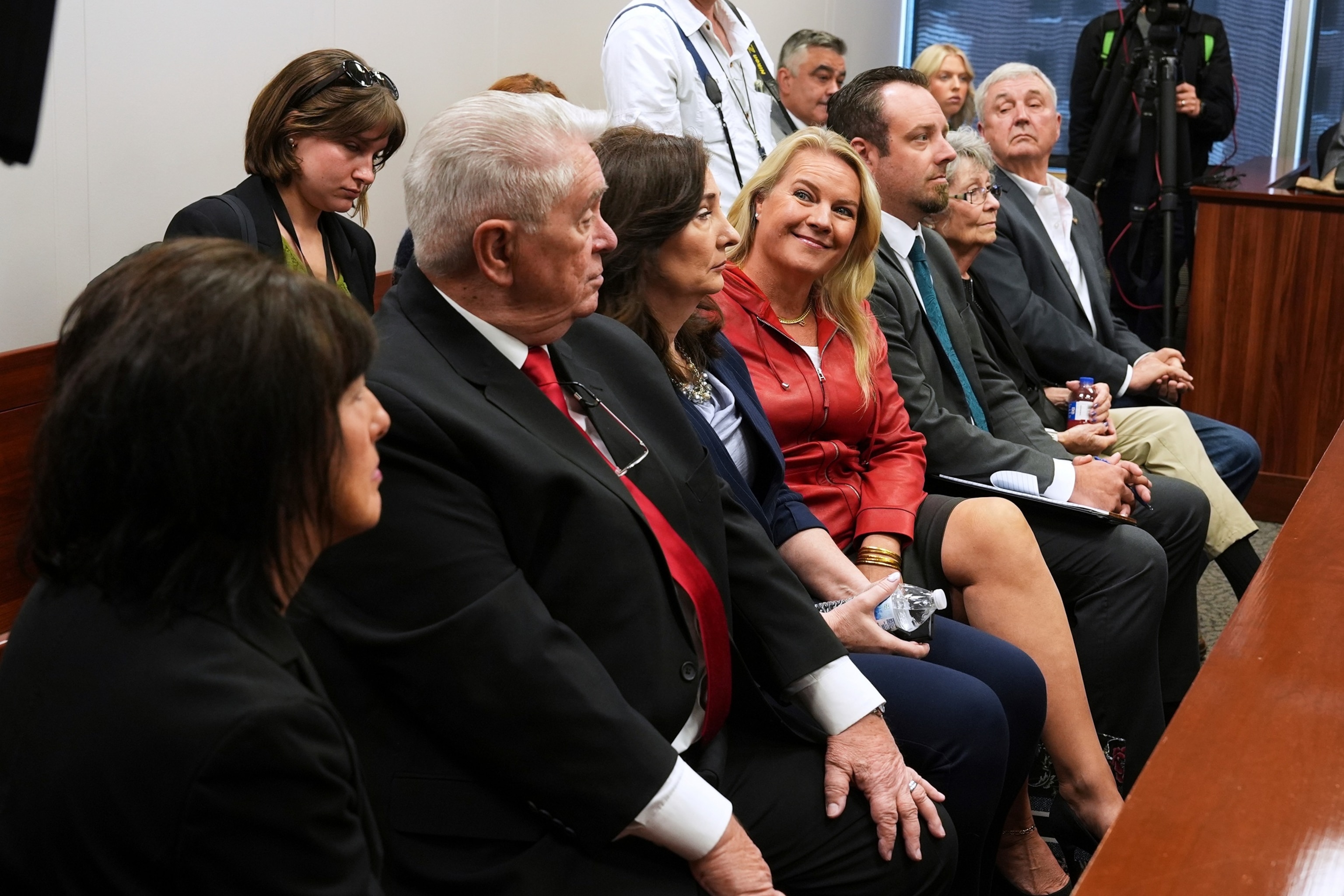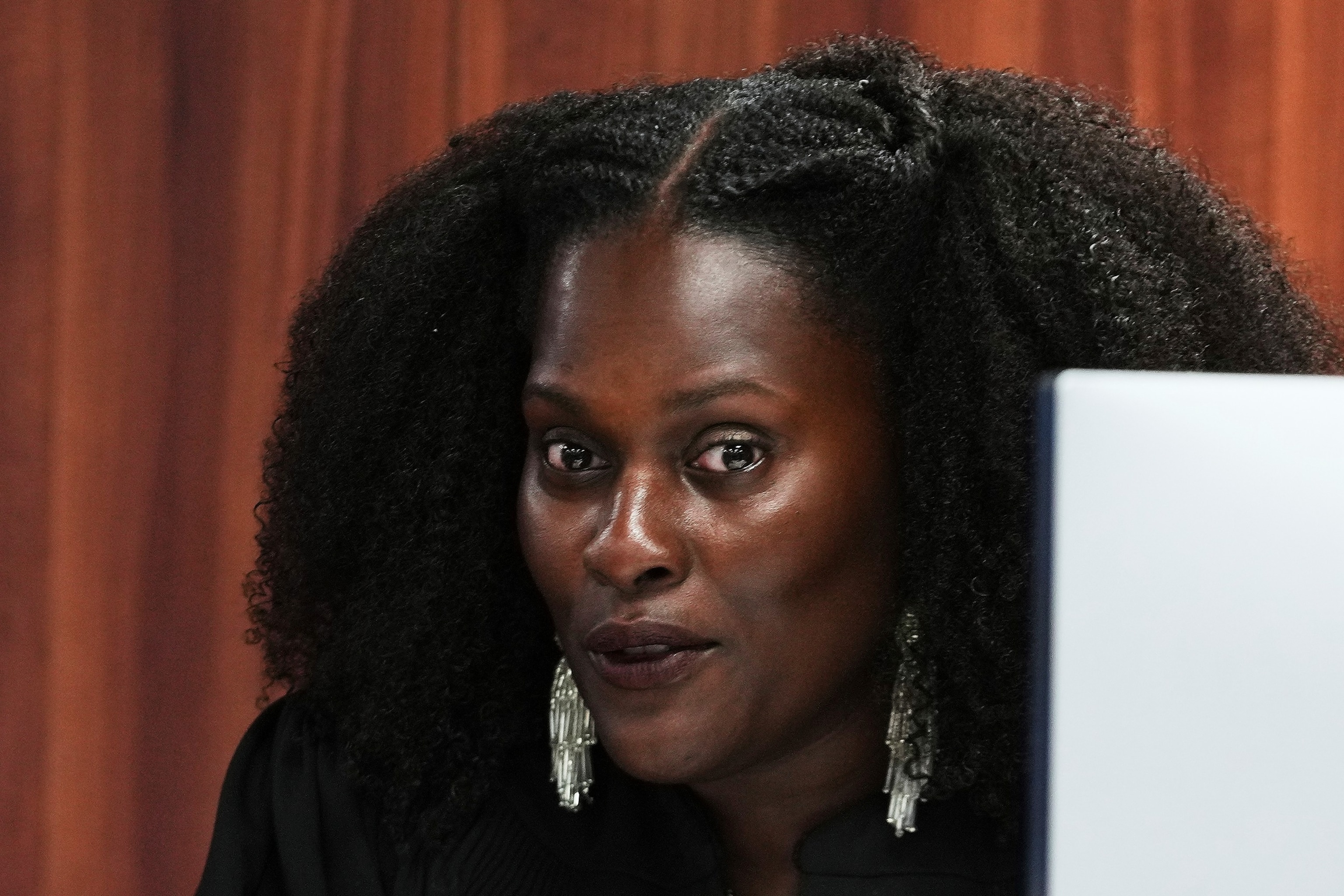A Michigan judge has dismissed the case against 15 people accused of being “false voters” for Donald Trump in the 2020 elections.
Judge Kristen Simmons said Tuesday that she found sufficient evidence to prove that the defendants acted with criminal intention.
“This is a case of fraud, and we have to demonstrate intention, and I don’t think there are sufficient evidence to prove the intention,” he said during an audience on Tuesday.
“I think they were executing their constitutional right to seek repair, and that is based on the statements of all the witnesses of the people,” said the judge. “For these reasons, these cases will not be obliged to the circuit court. Each case will be dismissed.”
The case was announced in 2023 by the Michigan Attorney General, Dana Nessel, who accused 16 Republicans, one of whom later cooperated with the Prosecutor’s Office and dropped his positions, with falsification and conspiracy to commit an electoral forgery.

Marian Sheridan, on the left, Clifford Frost, Amy Facchinello, Meshawn Maddock, an unidentified lawyer, Rose Rook and Hank Choate appear during a hearing from the District Court in which a Michigan judge dismissed the criminal cases against 15 people accused of acting as electors for President Donald Trump in the elections of 2020, on September 9, 2025 Lansing, Mich.
Paul Sancya/AP
The positions were derived from a meeting on December 14, 2020, where the group supposedly met “covertly” and signed certificates falsely affirming that they were the duly elected voters of the State in an effort to re -relate Trump President.
During the hearing, Judge Simmons said the Prosecutor’s Office could not establish that the voters intended to disappoint anyone.

The judge of the Kristen Simmons District Court speaks while dismissing the criminal cases against 15 people accused of acting as electors for President Donald Trump in the 2020 elections, on September 9, 2025 in Lansing, Mich.
Paul Sancya/AP
“This is not a case of electoral interference,” he said.
“The Prosecutor’s Office wants the Court to believe that these defendants appointed were experts or sophisticated enough to completely understand the electoral process, that the court does not agree because the document that was presented does not even align with the level of sophistication they want to believe,” Judge Simmons said.
“There are many things that could cause a pause in the electoral process, and it does not mean that it is criminal,” said the judge.




